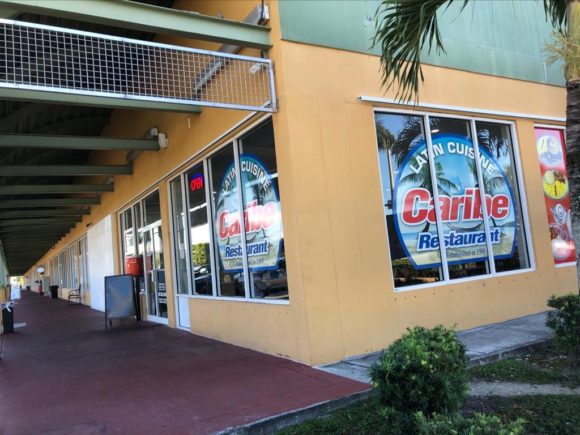A federal court on Wednesday rejected two separate petitions to consolidate lawsuits filed by policyholders against insurers that denied COVID-19 business-interruption claims under a single judge, but said it might approve consolidation of other actions that make similar claims against the same insurer.
The U.S. Judicial Panel on Multidistrict Litigation dismissed a petition to centralize 11 lawsuits in the Eastern District of Pennsylvania and another petition to centralize those same lawsuits and five others in the Northern District of Illinois. One plaintiff had dismissed its petition to consolidate, leaving 15 lawsuits remaining in those pleadings.
The panel, in an order written by Acting Chair Ellen Segal Huvelle, said it would be an understatement to call consolidation of the cases a complicated task.
“A transferee court would have to establish a pretrial structure to manage the hundreds of plaintiffs—many with disparate views of the litigation—and more than one hundred insurers,” Huvelle wrote. “The court also would have to identify common policies with identical or sufficiently similar policy language and oversee discovery that likely will differ insurer-to-insurer.”
The panel denied petitions filed by plaintiffs that included Big Onion Tavern Group, Wagner Shoes and Bridal Expressions who filed lawsuits in federal courts in Alabama, Florida, Illinois, New York, Ohio, Oregon, Pennsylvania, Texas and Wisconsin. The proponents of consolidation identified three common questions that they said should be resolved by a single court:
- Do the various government closure orders trigger coverage under the policies?
- What constitutes “physical loss or damage” to the property?
- Do any exclusions (particularly those related to viruses) apply?
The five judges who signed panel’s order said the plaintiffs’ lawsuits entail very few common questions of fact. The judge assigned to the case would have to manage hundreds of plaintiffs, many with disparate views on the litigation, involving more than 100 insurers. Even though the plaintiff’s argued that the insurers use common policy forms, the multidistrict panel said those forms are often modified by carriers and minor differences in policy language can have a significant impact on the scope of coverage.
“Managing such a litigation would be an ambitious undertaking for any jurist, and implementing a pretrial structure that yields efficiencies will take time,” the order states. “As counsel emphasized during oral argument, however, time is of the essence in this litigation.”
The order says that 263 other actions remain pending, in addition to 15 lawsuits included in the two petitions that were dismissed.
The panel also rejected proposals from several plaintiffs to consolidate cases by region or state because each would require the assigned court to deal with multiple defendants and different policies, coverages and exclusions. The court didn’t dismiss those petitions outright, but ordered attorneys to file arguments as to why their petitions should not be dismissed — an action known as an order to show cause.
On the other hand, the multidistrict panel said consolidating COVID-19 business-interruption claims against a single insurer or group of insurer might make sense.
“The actions are more likely to involve insurance policies utilizing the same language, endorsements, and exclusions,” the order says. “Thus, there is a significant possibility that the actions will share common discovery and pretrial motion practice.”
The panel said consolidation may be appropriate for lawsuits against four of the insurers that face COVID-19 lawsuits because of denied COVID-19 claims: Certain Underwriters at Lloyd’s of London, Cincinnati Insurance Co., the Hartford insurers and Society Insurance. The panel owed those carriers to submit arguments explaining why the lawsuits against them should not be consolidated.
“The panel requires a better understanding of the factual commonalities and differences among these actions, as well as the efficiencies that may or may not be gained through centralization, before creating an insurer-specific MDL,” the order states.
Plaintiff attorney Richard Golomb, of the firm Golomb & Honik, Philadelphia, who filed the Pennsylvania petition, welcomed the insurer-specific consolidation and said there are other efforts at consolidation underway.
“We have reviewed the order from the JPML panel and are optimistic that with further briefing they will centralize the cases against the four major carriers listed,” Golomb said in an email. “As for the cases against the balance of the carriers, we have been coordinating with many firms along the way in the event of such a ruling and are satisfied that whether through 1404 coordination, or by other less formal means, these cases will be litigated and resolved in the best interest of our clients.”
Plaintiff attorney Adam Levitt, of DiCello Levitt in Chicago, offered a similar assessment. He said that while his clients are disappointed the MDL panel did not see the efficiencies of consolidation, his firm’s efforts to achieve efficiency will continue and they will eventually “hold the insurance industry accountable for shirking its responsibilities to its customers.”
The MDL panel has given insurers until Aug. 26 and plaintiffs until Sept. 3 to weigh-in on the insurer-specific proposal. The panel will hear arguments on its next scheduled date for hearings, Sept. 24.
About the photo: The Caribe Restaurant chain, which operates six restaurants in the Miami area, was one of the plaintiff’s whose petition to consolidate business-interruption lawsuits against insurers was dismissed Wednesday.
Was this article valuable?
Here are more articles you may enjoy.


 Bayer to Make $10.5 Billion Push to Settle Roundup Cases
Bayer to Make $10.5 Billion Push to Settle Roundup Cases  Gas-Guzzler Revival Risks Dead-End Future for US Automakers
Gas-Guzzler Revival Risks Dead-End Future for US Automakers  UK Floods Raise Specter of ‘Mortgage Prisoners’ Across Banks
UK Floods Raise Specter of ‘Mortgage Prisoners’ Across Banks  Claims Handling Breakdowns From LA Wildfires One Year on
Claims Handling Breakdowns From LA Wildfires One Year on 